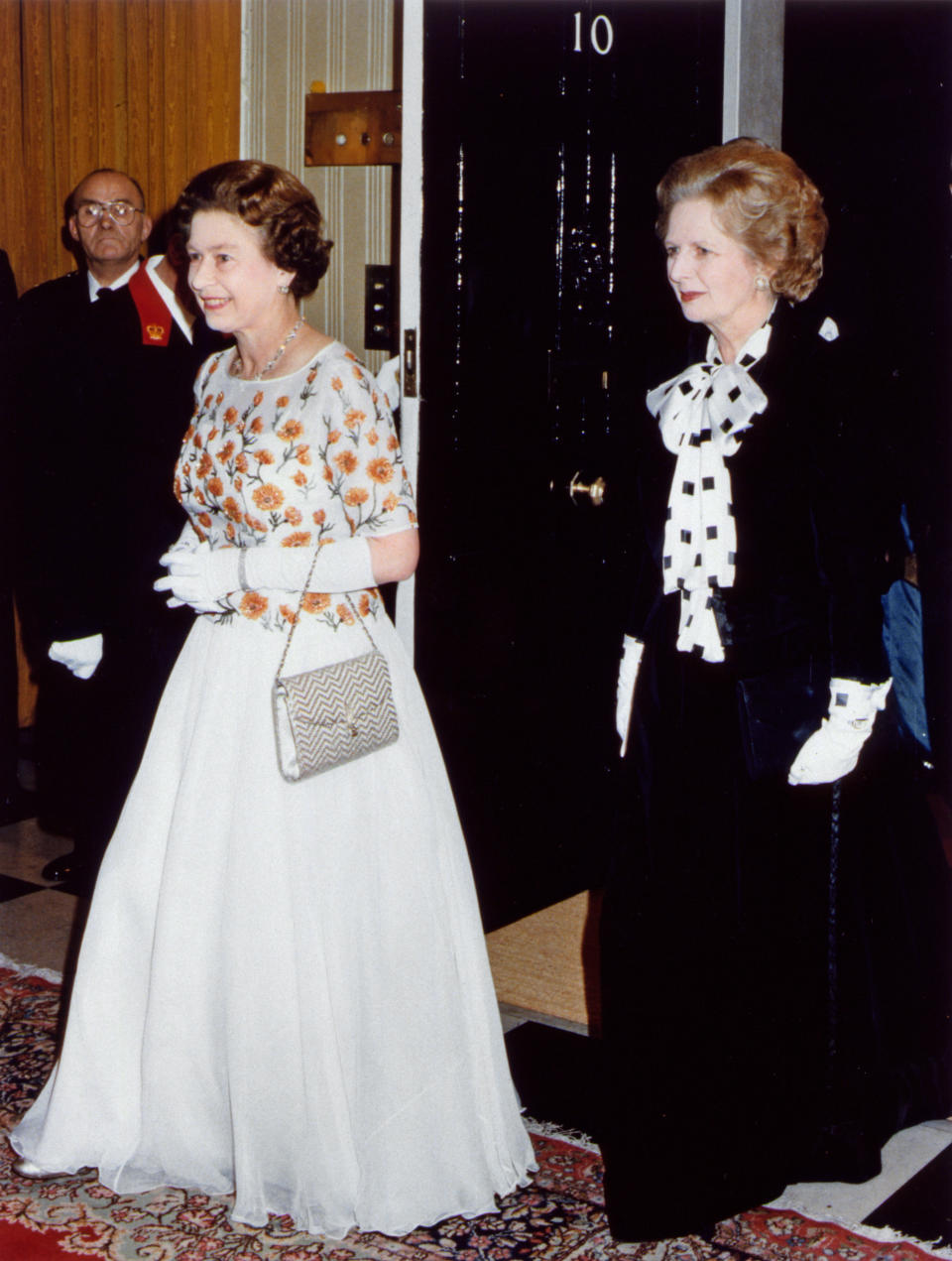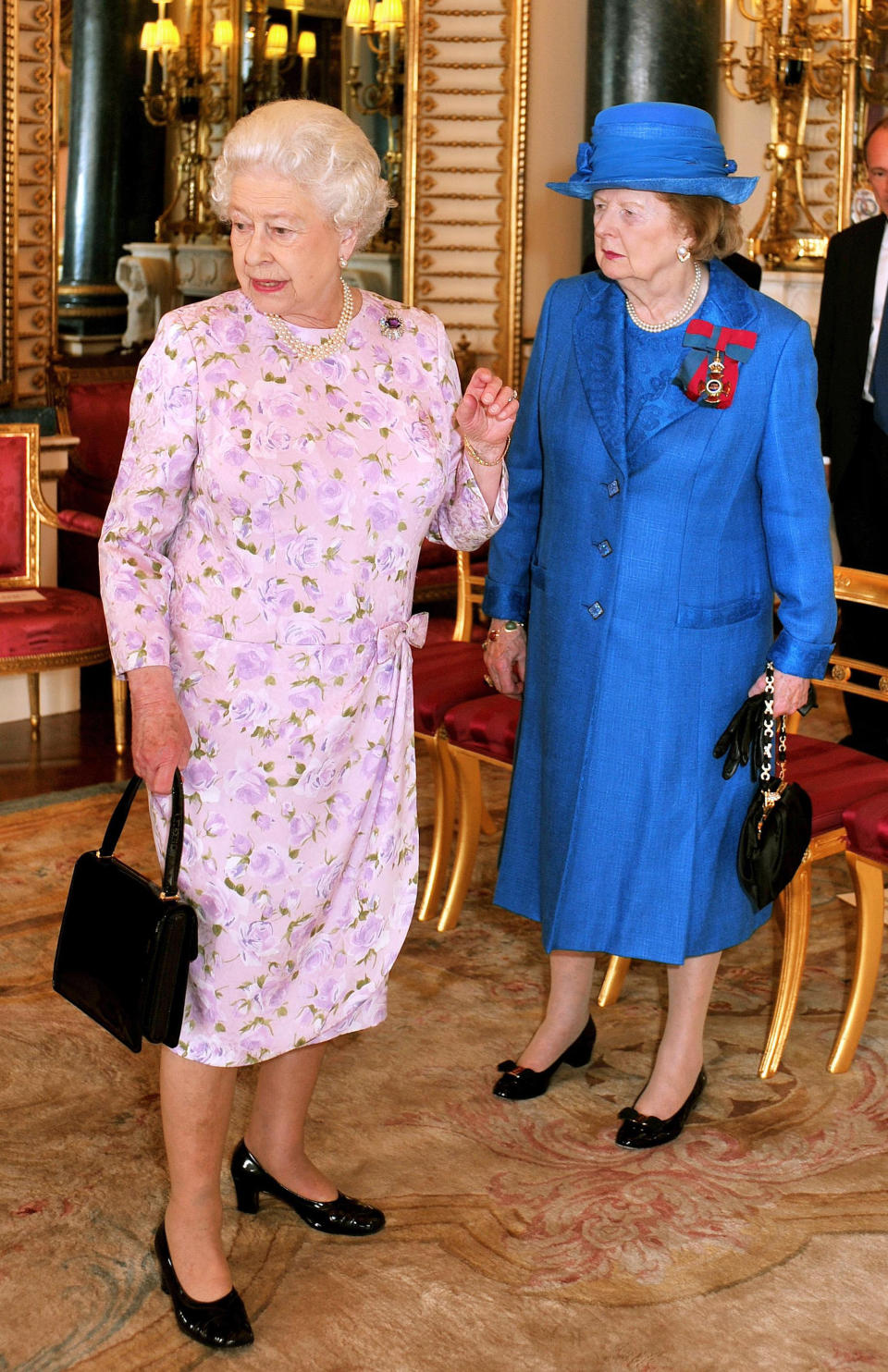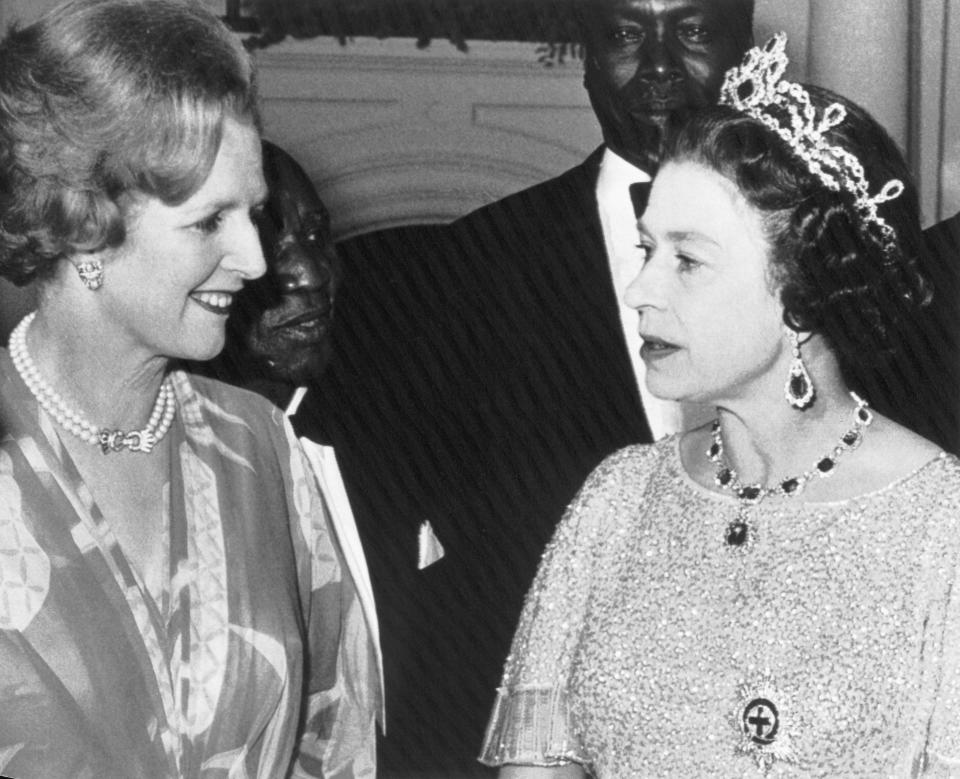Did the Queen and Margaret Thatcher really feud?
Watch: Olivia Colman insists Gillian Anderson will ‘take your breath away’ as Margaret Thatcher
The Crown season four will welcome Gillian Anderson as Margaret Thatcher, a woman who dominated British politics for a decade.
Despite being similar in age, both mothers, and both in incredibly important roles, the differences between the Queen and Thatcher were enough for the women to have a difficult relationship during Thatcher’s 10 years in Number 10.
The Crown in particular will tackle a key issue the women clashed over in the mid-1980s - apartheid in South Africa.
The Queen is understood to have wanted the UK to impose tougher sanctions on South Africa until it ended the policy of apartheid, which separated white people from Black people in the country.
But Thatcher doesn’t want to co-operate with other Commonwealth leaders and impose the restrictions.
In 1986, Reuters reported that senior cabinet members had made the unusual decision to brief newspapers that Thatcher and the Queen were “headed for a public rift” over the issue.
The report said: “In an almost unprecedented move, a number of ministers were quoted anonymously in British national newspapers Wednesday as saying that the monarch and the prime minister are headed for a clash unless Thatcher agrees to sanctions against Pretoria.
“The carefully concerted leaks, almost identically phrased, appeared in five papers, four sympathetic to the government.”

Read more: The Crown: How Princess Margaret was plagued by ill health
It was unprecedented because the Queen is politically neutral, and as such doesn’t express opinion on matters like that.
She’s said to mostly indicate her thoughts to her prime ministers by simply asking: “Are you sure?”
AP reported that after the first papers were released, Buckingham Palace spokesman Michael Shea said: “As with all previous prime ministers, the Queen enjoys a relationship of the closest confidentiality with Mrs. Thatcher and reports purporting to be the Queen’s opinions of government policies are entirely without foundation.”
Thatcher’s position was that negotiation was better than sanctions, but according to reports, the Queen wanted to see sanctions as she feared the break-up of the Commonwealth.

Read more: Nine things the Queen has said about the Commonwealth she gave 'heart and soul' to
A boycott by several nations of the year’s Commonwealth Games led the Queen to fear further disruption to the union.
At the time, Labour foreign affairs spokesman George Foulkes said: “The Queen is being put in an increasingly embarrassing position by the Prime Minister’s obstinacy, and the Commonwealth Games are sliding into utter shambles.”
In 2017 it was revealed that the Queen was so frustrated by the row that she considered ending the tradition of the weekly meeting between Prime Minister and monarch.

Files released that year under Ireland’s 30 year classified rules showed that in 1987, Richard Ryan, a former chargé d’affaires at Ireland’s embassy in London, sent a message to the Irish prime minister saying: “There is a wide view too that the Queen is in a rage with Mrs Thatcher over her handling of the sanctions question (not because of the substance of the argument but because of its style: the Queen, it is said, sees the insensitivity as further damaging ‘her’ Commonwealth at a sensitive time).”
Ryan, using a fake name for the Queen made popular by Private Eye added: “A source in the Palace said that ‘Brenda’ was seriously considering cancelling last night’s Tuesday audience with the Prime Minister.”
But Thatcher’s biographer, Charles Moore, said in 2015 that the Queen had called the Prime Minister when the leak had happened to the papers to apologise for it.
As topics and content of the meetings between the Queen, who is head of state, and her prime ministers, as head of government, are kept private, there’s no way of knowing if The Crown got anything else right about the weekly chats between the pair.
Watch: Who is Margaret Thatcher?

 Yahoo News
Yahoo News 
